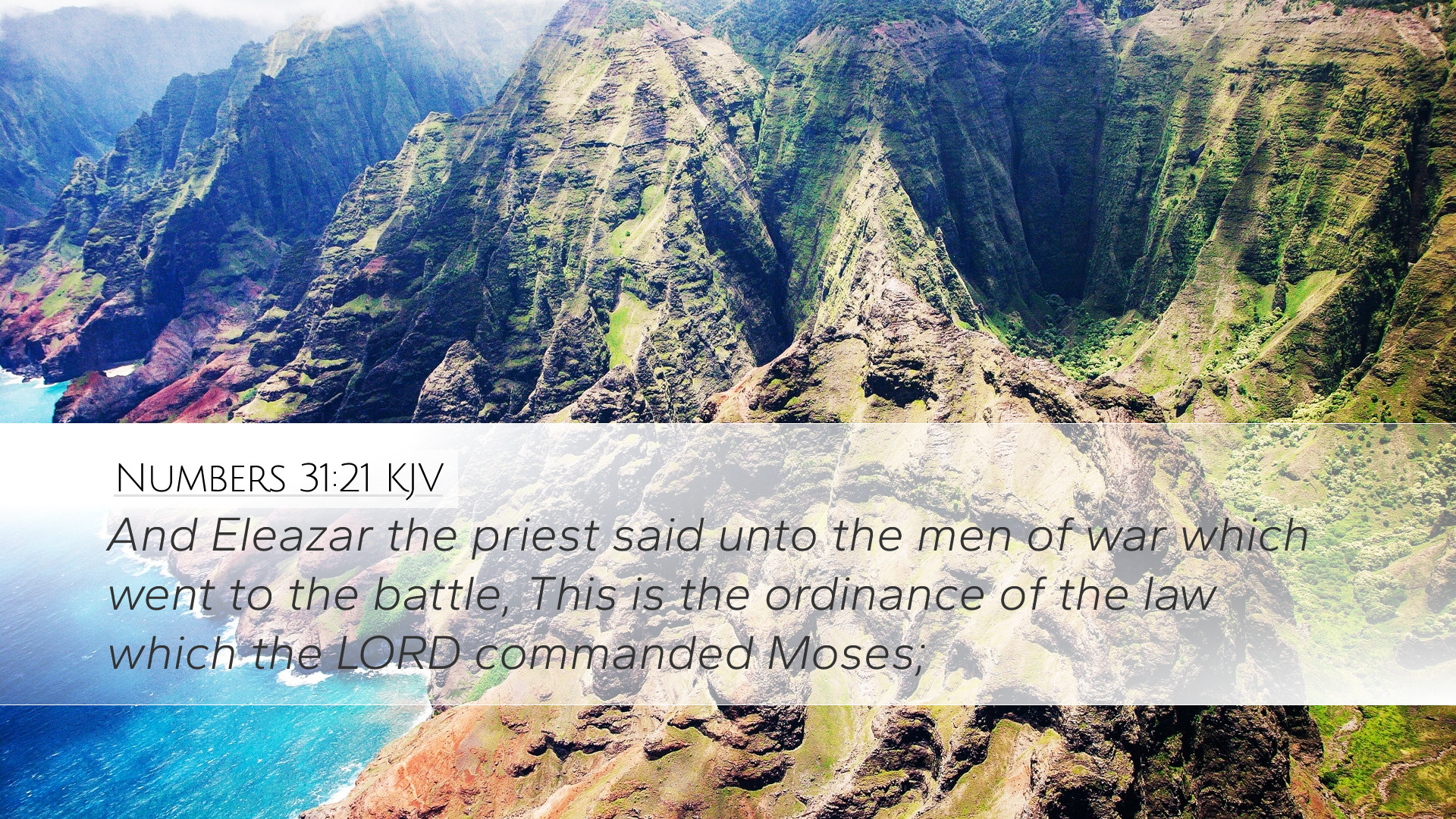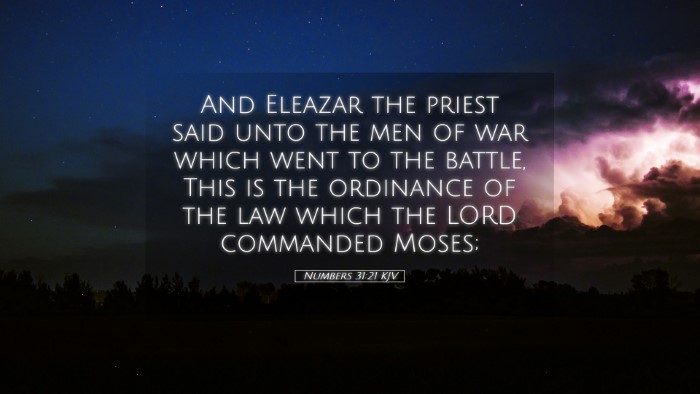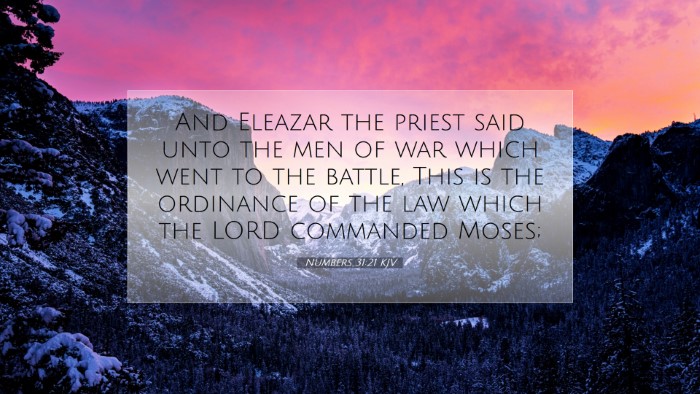Commentary on Numbers 31:21
Numbers 31:21 states: “And Eleazar the priest said unto the men of war which went to the battle, This is the ordinance of the law which the Lord commanded Moses;” This verse forms a pivotal moment in the narrative of the Israelites as they grapple with victory and divine law following a significant battle. Below are insights drawn from esteemed public domain commentaries.
Contextual Understanding
The backdrop of this verse is the recent conflict against the Midianites, culminating in a significant victory for Israel. It is essential to note that Eleazar, the priest, plays a crucial role in conveying God’s ordained guidelines to the soldiers, emphasizing the integration of warfare with divine law.
Insights from Matthew Henry
Matthew Henry, in his extensive commentary, highlights the importance of Eleazar's authority. He notes that Eleazar not only speaks as a priest but as a mediator of God's commandments to the people. This reflects the inextricable link between leadership in Israel and the adherence to God’s ordinances.
- Priestly Role: The priest’s role signifies spiritual oversight, underscoring how religious and civil duties were intertwined in Israelite society.
- God’s Commandments: Henry emphasizes that these ordinances are not merely legalistic but are intended to instill a sense of holiness even in the context of warfare.
- Reflection of God’s Character: The laws provided represent God’s desire for order and righteousness, even amid conflict.
Insights from Albert Barnes
Albert Barnes provides additional layers of understanding, particularly by placing this verse within the broader context of Israel's legal and covenantal obligations. He asserts that the laws given to Moses, and reiterated by Eleazar, underscore the seriousness of obedience to the divine will.
- Covenantal Emphasis: Barnes underscores that the laws reflect Israel’s covenant with God, where their success in battle is directly related to their fidelity to His commands.
- War and Worship: The transition from war to worship is captured by the priestly instruction, recognizing that even amidst victory, the glory must be ascribed to God.
- Community and Law: The public declaration of these ordinances serves as a reminder to the community of their shared responsibility to adhere to God's laws.
Insights from Adam Clarke
Adam Clarke approaches Numbers 31:21 with a focus on the historical and linguistic dimensions. He explicates that the term “ordinance” pertains to divine statutes that are obligatory and binding upon the community of Israel.
- Historical Context: Clarke emphasizes that understanding this passage requires an acknowledgment of Israel's historical struggles and the need for divine guidance.
- Importance of Obedience: Clarke argues that the reiteration of these ordinances is pivotal for future generations to recognize the sanctity of their covenantal relationship with God.
- Symbols of Victory: He also notes how victory in battle serves as a symbol of God’s favor, thus the ordinances reinforce Israel’s identity as God’s chosen people.
Theological Reflections
This verse invites us to reflect on the relationship between faith and action. The commands delivered through Eleazar remind us that God's direction must permeate all aspects of life, including our most difficult endeavors.
Applications for Today
- Understanding Authority: Leaders within the church today can draw parallels from Eleazar’s role, recognizing their responsibility to lead with both authority and humility, grounded in God's word.
- Covenantal Living: The call to obey God's guidelines is still relevant; thus, believers are encouraged to engage with Scripture and apply its teachings to contemporary dilemmas.
- Integration of Faith and Work: This passage challenges modern believers to integrate faith into every facet of life, emphasizing that spiritual practices should influence personal and community conduct.
Conclusion
Numbers 31:21 serves as a vital reminder of the intersection between divine law and human action. Through the insights of esteemed commentators, it becomes evident that God's instructions are meant to guide His people in righteousness, instilling a deep sense of responsibility and communal identity. As we reflect on this passage, may we be inspired to uphold God's ordinances in our own lives, recognizing their importance in establishing a faithful community that honors God in every endeavor.


